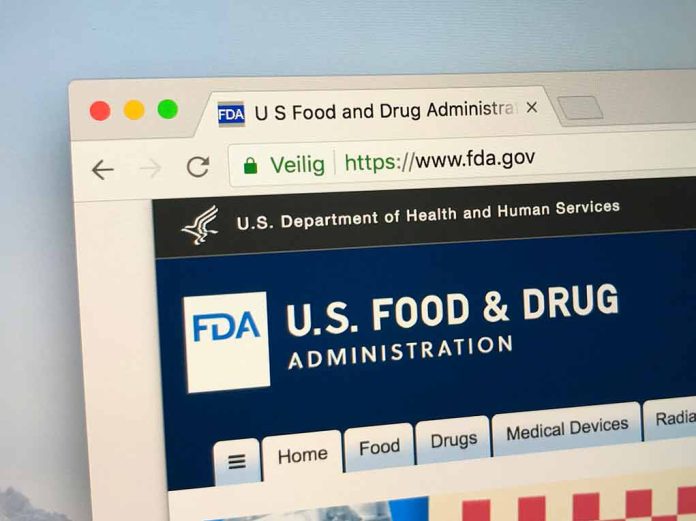
While the FDA approves a breakthrough HIV drug that could end the epidemic, its eye-watering $14,109 per injection price tag could prevent countless Americans from accessing this life-saving treatment.
Key Takeaways
- The FDA has approved Yeztugo (lenacapavir), a groundbreaking HIV prevention drug administered just twice yearly that demonstrated near-total protection in clinical trials
- Developed by Gilead Sciences, Yeztugo is 89% more effective than existing daily oral medications and completely prevented HIV transmission in trials among women in sub-Saharan Africa
- At $14,109 per injection, serious concerns exist about affordability and accessibility despite Gilead’s patient assistance programs
- This medical breakthrough represents the most significant advancement in HIV prevention in over four decades but faces challenges from insurance coverage limitations
Revolutionary Protection With Twice-Yearly Dosing
The FDA’s approval of Yeztugo marks a potential turning point in the decades-long battle against HIV. This revolutionary drug, developed by Gilead Sciences, requires only twice-yearly injections rather than the strict daily pill regimen of current preventative medications. In rigorous clinical trials, Yeztugo demonstrated an 89% lower HIV infection rate compared to Truvada, the daily oral medication, and a remarkable 96% lower rate than expected without any preventative treatment. Most impressively, in a trial focused on cisgender women in sub-Saharan Africa, not a single participant receiving Yeztugo contracted HIV.
Yeztugo represents the first in an entirely new class of antiretroviral medications that prevent HIV from replicating in immune cells through a novel mechanism. Unlike daily pills that must be taken consistently to maintain protection, the twice-yearly injection removes the adherence challenges that have hampered HIV prevention efforts for decades. The convenience factor alone could dramatically increase protection rates among at-risk populations who struggle with consistent daily medication regimens.
Cost Concerns Threaten Widespread Access
Despite Yeztugo’s game-changing potential, its astronomical price tag threatens to severely limit access. At $14,109 per injection – totaling over $28,000 annually – many Americans will face significant barriers to obtaining this life-saving medication. While Gilead has announced patient assistance programs for uninsured and underinsured individuals, the administrative hurdles and coverage gaps could leave many vulnerable Americans without access to this breakthrough treatment. The drug’s high cost will also place additional burdens on an already strained healthcare system and insurance companies that may be reluctant to cover such expensive treatments.
“This is the single best opportunity in 44 years of HIV prevention,” said Mitchell Warren, executive director of AVAC, a global HIV prevention advocacy organization. NBC News
Insurance coverage remains a critical concern even for those with health plans. Many insurers impose restrictive prior authorization requirements for expensive medications, requiring patients to try cheaper alternatives first or demonstrate specific risk factors. These bureaucratic hurdles could prevent high-risk individuals from accessing Yeztugo when they need it most,” said President Trump, who has prioritized ending the HIV epidemic. The affordability challenges of cutting-edge treatments like Yeztugo highlight the complex balance between pharmaceutical innovation and accessibility.
Potential to End the HIV Epidemic
Despite the cost concerns, health experts and Gilead executives remain optimistic about Yeztugo’s potential to dramatically reduce HIV transmission rates across America. The medication’s effectiveness could be particularly transformative for communities with disproportionately high HIV rates, including racial minorities and LGBTQ+ individuals. The convenience of twice-yearly dosing removes many barriers that have historically limited prevention efforts, potentially reaching populations that have been underserved by current prevention strategies.
“End the HIV epidemic once and for all,” said Daniel O’Day, Chairman and CEO of Gilead Sciences, emphasizing the historic significance of this medication’s approval. NBC News
While daily HIV prevention medications have helped reduce transmission rates in recent years, their impact has been limited by inconsistent use. Yeztugo’s twice-yearly administration provides sustained protection that could finally make significant headway against an epidemic that has plagued America for over four decades. However, this potential can only be realized if the medication becomes “available easily and at low or no cost to people who can benefit from it who are uninsured or underinsured,” as Dr. Susanne Doblecki-Lewis, an infectious disease specialist at the University of Miami, emphasized.


